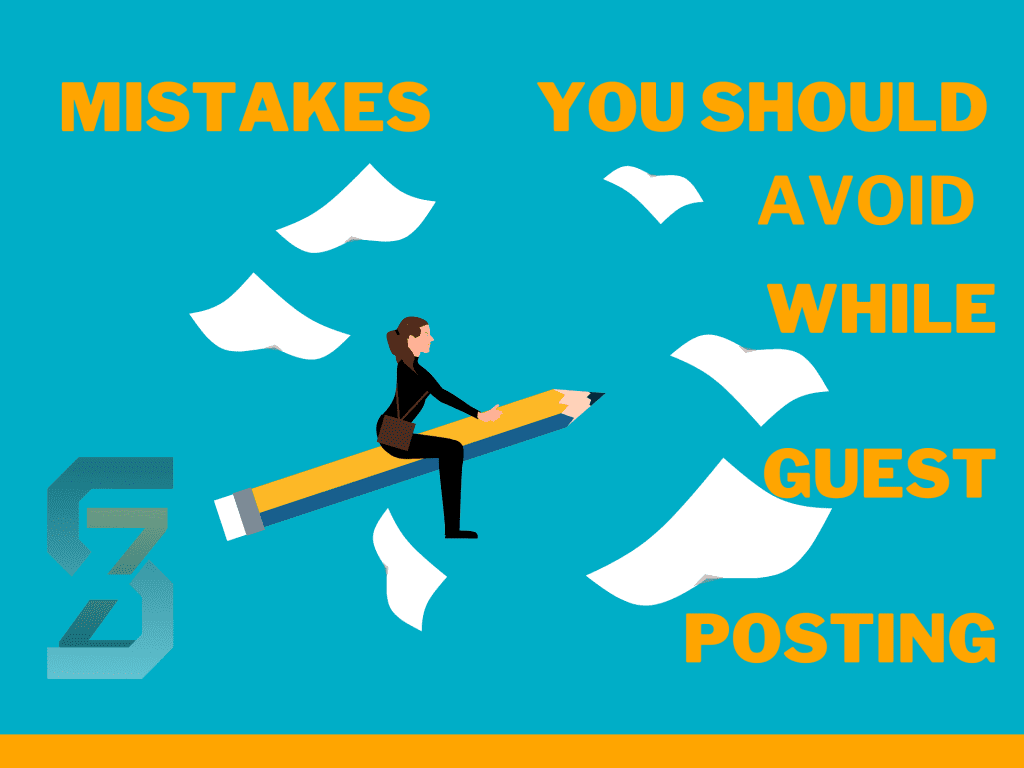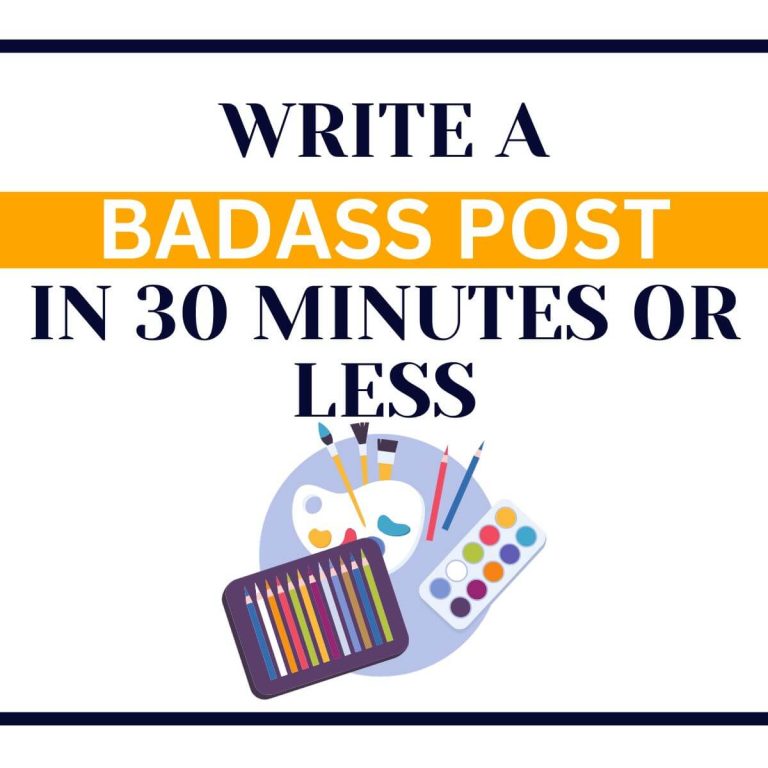Please Follow us on social media >>>>
Guest Post: The 5-Step Method to Beat the Challenge of Writing.
How to Write a Guest Post that Gets Results Even if You are New to Writing
Are you ready for a guest post? Or are you intending to be a guest blogger? Maybe you want to be a badass content writer. If so, you are at the right place.
Guest posting and guest blogging is the practice of writing on what you are expert at in other people’s websites or blog. If you do this, you are a guest blogger.
My name is Echez O’Ford. I am a writer, freelancer and the founder of Success zenith.
As a blogger, content writer or a webmaster, you know the importance of guest posts, especially if you want to make some money through blogging.
They’re a great way to get your name and your blog out there, generate traffic and build relationships with other bloggers.
Related Topics
But guest articles can also be a challenge to write, especially if you’re not used to writing for someone else’s blog.
Although the internet is full of resources and tips to help you improve your guest blogging strategy in this article, I will talk about, Guest posts, Blogging, content creation, and Traffic Generation through writing for other people’s websites.
While it is a challenge to write for others, there is a method that you can use to make writing guest posts easier and more effective.
Because writing a guest post can be a great way to reach a new audience and promote your brand or ideas, you don’t want to miss this opportunity.
Tips To Help You Write a Successful Guest Post:
There are basically two areas you need to pay attention to while you write your guest posts.
I have had people submit guest posts on topics that are entirely out of focus with some of the sites I manage. This is a practice to avoid.
so, here are two things to look out for:
- Know the target audience.
- Choose a compelling topic.
This means that before you start writing, you must take the time to research the target audience of the publication you’re writing for.
- What kind of content do they typically publish?
- What topics do their readers care about?
- Knowing the audience will help you write content that resonates with them.
Your guest post should cover a topic that’s both interesting to you and relevant to the publication’s audience.
Consider current events or trending topics in your industry or share your expertise on a subject you’re passionate about.
Now that we have those out of the way, let’s delve into the nitty gritty of writing a post to showcase your expertise and drive traffic back to your content.
5 Ways to Being the Best Guest Blogger
1. Write a Strong Headline:
Your headline is the first thing people will see when they come across your guest post, so it’s important to make it attention-grabbing and informative.
Aim for a headline that’s both descriptive and interesting. This will give your readers a good reason to click through to know what you are talking. about.
Make your headline short. A long headline is boring and will usually be cut off by most search engines like Google.
Google recommends that your headlines be 60 characters long. While there has been a long-standing debate on what constitutes a good headline length, your overall goal should affect your choice.
For instance, Backlinko iterates that long headlines perform better. Stating that longer headlines has more social shares.
So, if your post or article is intended for social share, you may want to make your headline more descriptive thus increasing the length and size.
But, if on the other hand, your article is mean to be featured in the search engines, consider reducing it to avoid being cut off.
Tools to Write best Guest Post Headlines:
While you can generate a good headline by yourself, there are smart tools to make the work of coming up with the smartest headlines easy.
Find some handy examples below for your headline generation.:
- Sharethrough Headline Analyzer
- CoSchedule
- Portent’s Content Idea Generator
- HubSpot Blog Ideas Generator
- Optinmonster Headline Analyzer
2. Start Your Guest Post with a Hook:
The first few sentences of your guest post should draw readers in and make them want to keep reading. This could be a surprising fact, a personal story, or a provocative question.
Your hook can be a question. But make sure to provide the answer in your copy.
You can start your hook with the end result of the process you are writing about. For instance, if you are writing about how to get more leads, your hook could be the result of your process. “How I got 4000 people to sign up on my email list in 2 days”
These tactics attract people who are interested in the end result.
3. Keep Your Guest Post Concise.
I hear this question a lot on forums. The length of a guest post can vary depending on different factors, Readers are often busy and don’t have a lot of time to spend reading long articles.
Different factors often affect how long a guest post should be. Some factors include:
- The publication you are writing for can affect how long your post and article should be, Most guest posts are between 500 and 1,500 words. Some publications may have specific guidelines for the length of guest posts, so it’s a good idea to check before you start writing.
- The topic: if you are writing a tutorial that should be a last stop for anybody looking for the information you offer, then you must go in-depth. On the other hand, if you are writing a simple list post, 500 words can be what you need.
- If you want to
write 2000 to 3000words of a complete guide on something, then go for it. It does not really matter as long as your content gets the job done/.
Aim for a guest post that’s between 500 and 800 words and easy to read, using short paragraphs and subheadings to break up the text.
Unless the target webmaster asks for a long form content, there is no need to go overboard with your article.
If your article takes needless time to read through by the webmaster or the editorial team, your chances of getting an approval will be greatly reduced.
Some types of articles and topics can only be effective with long form content. This should be taken into consideration when crafting your post.
If you are writing a tutorial, make sure to be simple and concise but do not leave out any relevant information.
How Long Should Your Post Be?
In general, it’s important to aim for a guest post that is both comprehensive and concise.
A post that is too short may not provide enough value to the reader, while a post that is too long may be difficult to read and retain.
If you find that your post is getting too long, you may consider breaking it into parts of smaller articles.
When Determining the Length of Your Guest Post, Consider the Following Factors:
- Audience: Who will be reading your post, and what kind of attention span do they have?
- Topic: What is the scope of the topic you’re writing about? Some topics may require more depth and detail, while others can be covered in a shorter post.
- Style: How do you prefer to write and what kind of pacing and structure do you find most effective?
Ultimately, the length of your guest post should be based on what is most appropriate for your topic, your audience, and your writing style as well as the requirements of the target website.
Whether you write a 500-word post or a 1,500-word post, the most important thing is that your content is high-quality, informative, and engaging.
Echez O’ Ford
4. Use Visuals to Spice Your Guest post up:
Vissuals are a great way to keep your readers glued to your content. It increases engagement and social shares.
But there is more to it.
Including images, infographics, or videos in your guest post can help break up the text and make it more engaging for your readers.
Need a push on this? See some hack below on using visuals on your guest post.
Use images and videos. You can use screenshots, photos, or even create custom graphics to illustrate your points. A handy tool to do this is Canva.
Use charts and graphs: Charts and graphs are another way to present data in an easy-to-understand format. You can use tools like Google Sheets or Excel to create your own charts and graphs.
Add captions: Captions helps provide context for your visuals and make them more accessible to readers who may be visually impaired.
Don’t forget to Optimize for SEO: Make sure to optimize your visuals for search engines by using descriptive file names and alt tags.
5. Include a Call to Action to Your Posts:
Every guest post you write has a purpose. There is an action or actions you want your readers to take after reading your copy.
It is at the end of the post that you can re-emphasize the points you want them to remember and lead them to take your desired action.
So, end your guest post with a call to action, encouraging your readers to take some kind of next step, such as visiting your website, following you on social media, or signing up for your email list.
Thank you for reading this far. But we are not yet done. There are some more actions to be taken after you have successfully written your guest posts. Let’s talk about them below:
What to Do After You Write Your Guest Post
Proofread and edit your article before you submit it for approval: Before you submit your guest post, be sure to carefully proofread it for typos, grammatical errors, and other mistakes.
Consider having someone else review it as well, as a fresh set of eyes can often catch things you missed.
Use specially made tools to point out errors you may have missed while proofreading. The tools below will make your proof-reading work. easy:
- Qulilbot
- Grammarly
- Hemingway
- ProWritingAid
Verify that you followed the guidelines of the recipient of your guest post. If there are terms and conditions, you should be aware of those too.
Some sites have guest posting disclaimer, you should acquaint yourself with them to be sure you are not violating any rules.
You may be wondering who you should write a guest post for. Well, there is no straight answer to that. It depends on a few factors.
Let’s consider some of them below:
Who Should You Write a Guest Post For?
You can write for anybody or any organization. But you should focus your efforts on writing for relevant publications, websites, and blogs.
Write a guest post for a publication or website that reaches your target audience.
Consider the following factors when choosing whom to write for:
- Relevance: The publication or website should be in a related field or industry to what you write about. This is important if you are going to link back to your website.
- Audience: The recipient of your guest post should have a readership that is interested in the topics you write about.
- Authority: Pay attention to the reputation of whoever you want to guest post for. They should be well-respected in their field.
- Reach: Shoot for a website that has a large and engaged audience that you can reach with your guest post. After all, you want something back in the form of exposure and traffic.
- Fit: The publication’s tone, style, and content should be a good fit for your writing and your brand.
How To Find Guest Post Opportunities
You can find potential guest post opportunities by doing a thorough research on different search engines.
- Simple Google search for relevant blogs or websites in your field is a good start.
- Look at the author bylines of articles you admire.
- Reach out to contacts in your network to see if they know of any opportunities.
- While you are researching your writing, keep an eye on possible guest post opportunities.
- Once you’ve identified a few potential publications, read a few of their recent articles to get a better sense of their style and tone, and then reach out to the appropriate editor or contact person to inquire about submitting a guest post.
- Join LinkedIn: LinkedIn has the potential to land you guest posting opportunities. I started my journey there. You too can find success with it.

Mistakes You Should Avoid While Guest Posting
As is true with everything, there are some things you should stay away from when crafting a post or article for another website.
Make sure you understand the publication’s tone, style, and audience before you start writing. You want to your guest post to be a good fit for the publication and its readers.
Don’t write generic content: Your guest post should be unique and provide value to the publication’s audience.
Avoid writing content that is overly promotional or that has been published elsewhere.
Never ignore the publication’s guidelines: Most publications have specific guidelines for guest posts, so be sure to read and follow them closely.
This may include requirements for the length of the post, the format of the post, and the type of content that is acceptable.
Not promoting your post: Once your guest post has been published, promote it to your audience. Share it on your social media channels, email list, and other platforms.
Include a bio and links: Most guest posts include a brief author bio at the end of the post, along with links to your website, social media profiles, and other relevant information. This information helps readers reach out to your and connect with you on social media platforms.
Engage with the publication’s audience: Engage with the comments on your guest post, respond to questions, and continue the conversation. You can build relationships with the publication’s readers this way.
Follow up: After your guest post has been published, follow up with the publication’s editor to thank them for the opportunity and see if there are any future opportunities to collaborate.

How To Get People to Write Guest Posts for Your Website
On the other side of the of spectrum, you may want others to write for your website or publication. This too has its pros and cons. Let’s cover the basics here:
Go for authority: Establish your publication as a reputable and well-respected source of information in your field or industry.
Reach out to potential guest post authors: Identify individuals in your field or industry who have knowledge and expertise that would be valuable to your audience.
Reach out to them with a personalized email or message and ask if they would be interested in writing a guest post for your publication.
Offer incentives: Consider offering incentives such as exposure to your audience, a byline, and bio, or a link back to the author’s website.
These incentives help encourage individuals to write guest posts for your publication.
Provide clear guidelines: Make sure to provide clear guidelines for guest post submissions, including the length of the post, format, and type of content that is acceptable. This will help ensure that all guest posts are of high quality and align with your publication’s standards.
Promote guest posts: Once a guest post is published, promote it on your social media channels and other platforms. Encourage the author to do the same.
Foster relationships: Building strong relationships with guest post authors can lead to future collaborations and a steady stream of high-quality guest posts for your publication.

How to Get Webmasters You Can Write Guest Posts For
Here are some steps you can take to get individuals or organizations to write guest posts for their websites:
- Research potential guest post authors: Look for individuals or organizations in your field or industry who have expertise and knowledge that would be valuable to your audience.
- Reach out: Send a personalized email or message to each individual or organization, introducing yourself and explaining why you believe a guest post from them would be valuable to your audience.
- Offer incentives: Consider offering incentives such as exposure to your audience, a byline, and bio, or a link back to the author’s website. These incentives can help encourage individuals or organizations to write guest posts for your website.
- Provide clear guidelines: Make sure to provide clear guidelines for guest post submissions, including the length of the post, format, and type of content that is acceptable. This will help ensure that all guest posts are of high quality and align with your standards.
- Promote guest posts: Once a guest post is published, promote it on your social media channels and other platforms. Encourage the author to do the same.
- Foster relationships: Building strong relationships with guest post authors can lead to future collaborations and a steady stream of high-quality guest posts for your website.
By following these steps, you can attract individuals or organizations who are eager to share their knowledge and reach your audience. The key is to offer compelling incentives and to provide clear and detailed guidelines for guest post submissions.
What To Do If Your Guest Posting Proposal Is Rejected
If your proposal for a guest post is rejected, don’t be discouraged. Here are some steps you can take to handle rejection and improve your chances of success in the future:
- Reflect on the feedback: If the publication or website provided feedback on why your proposal was rejected, take the time to carefully consider it and see if there are any areas you can improve.
- Re-evaluate your proposal: Make sure your proposal is well-written, clearly articulated, and relevant to the publication’s or website’s audience. Consider revising your proposal to address any weaknesses and make it stronger.
- Try again later: Sometimes, timing is a factor in the rejection of a guest post proposal. If the publication or website is not currently accepting guest posts or is focused on a different topic, try reaching out again later.
- Seek out other opportunities. Don’t limit yourself to one publication or website. Look for other opportunities to share your expertise and reach a new audience.
- Keep learning and improving. Continuously improve your writing skills and knowledge in your field or industry. The more you have to offer, the more likely you are to be accepted for a guest post.
Rejection is a natural part of the guest post process, and it’s important to take it in stride and not give up. By being persistent, continuing to improve your skills, and seeking out other opportunities, you’ll eventually find success as a guest post author.
How To Link Back to Your Website from The Guest Posts?
Linking back to your website from a guest post is a common practice and can provide valuable benefits, such as increasing exposure and driving traffic to your site. However, it’s important to consider the following when including links in your guest post:
- Follow the publication’s guidelines: Some publications have strict policies regarding the number and type of links that can be included in a guest post. Make sure to carefully review the publication’s guidelines and follow them closely.
- Make the link relevant. Only include links that are relevant and add value to the reader. Avoid including links that are purely promotional or self-serving.
- Choose the right anchor text: The text used to link to your website (known as the “anchor text”) should be descriptive and relevant to the content of the guest post. Avoid using generic or overly promotional anchor text.
- Use follow links: If possible, make sure the links in your guest post are “follow” links, which pass on link juice and can help improve your website’s search engine ranking.
- Be transparent: Be transparent about your links, and make sure the reader understands their purpose.








[…] Guest Post: The 5-Step Method to Beat the Challenge of Writing. […]
[…] it for your guest blogging strategy. and watch your backlinking […]
[…] can be a challenge to write content that is both informative and engaging at the same time. But with a few tips, your content […]